THEME: Fruit of the Spirit
Hannah Hurnard’s book Mountain of Spices pairs a plant with each of the Fruits of the Spirit. Here, I connect those plants and our love of the outdoors with our faith journeys.
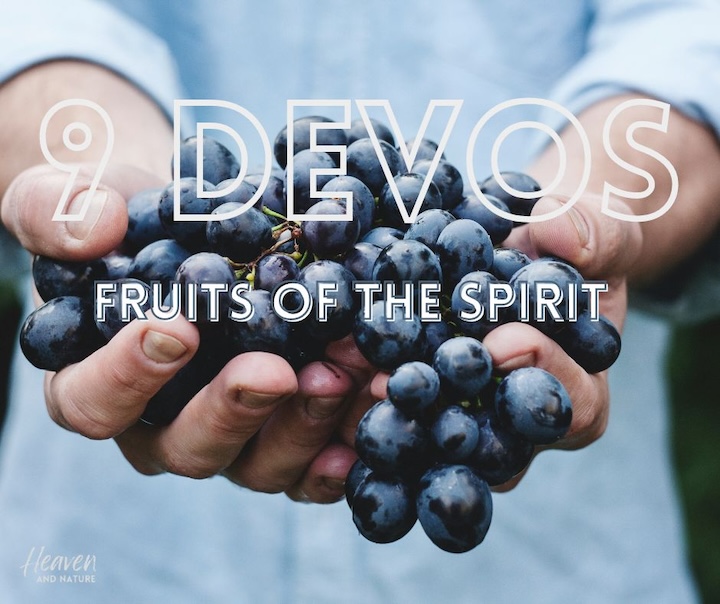
[There’s no other connection to Hannah Hurnard’s book than using the plants she assigned to the Fruits of the Spirit. Everything else is unique to this post. So if you’re curious about her perspective, I recommend reading Mountains of Spices and her precursor book Hinds Feet on High Places!]
Love: Pomegranate
Pomegranate is a fruit that grows in warmer climates. It’s juicy and sweet.
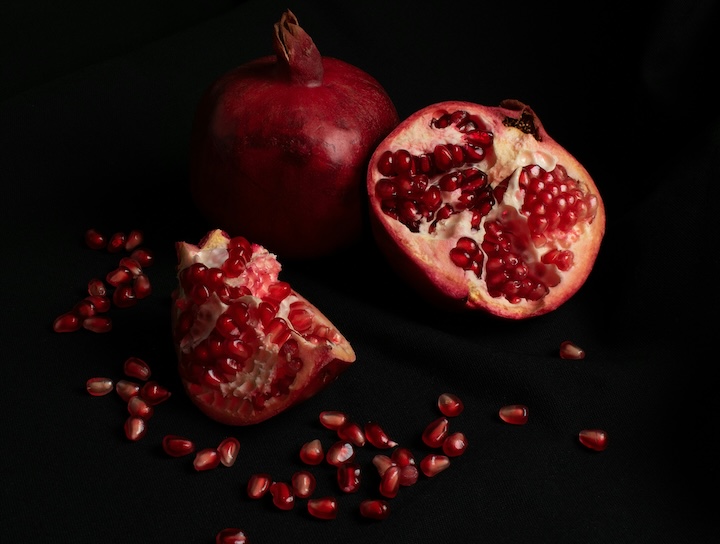
A distinctive aspect of pomegranate is that inside are hundreds of little pods of fruit that each have a seed. This means when the fruit is opened it can quickly disperse the seeds.
I think this is how we’re supposed to think of the Love of God—full of goodness and easy to disperse throughout our lives.
When we walk in the love of God through thought, word and deed, we pray it plants love inside the recipient so they can pass it on too.
In this way, the Fruit of Love can be contagious and cause a ripple effect much farther than we can see.
Matthew 25:14-30 tells the parable of the wealthy boss who gives money to three servants to invest. The ones who do invest come back having made a profit. The one who does not use his gift has nothing to show.
When we use our giftings to show love to people around us, we’re being good stewards of our strengths and abilities.
In this way, when we give away “seeds” of love throughout our lives by showing love to others, we may not see the “investment” but we know it’s there and we’ve been the hands and feet of Jesus.
Everyone has a different way of doing this in the world. Ask the Holy Spirit to show you how you can do this with your unique giftings in a way that’s life-giving to you and others around you!
Take a moment to reflect and ask the Holy Spirit how this could look in your life, with your current circumstances and capacity.
Are you surprised by what comes to mind?
Joy: Camphire
Camphire, also known as mignonette, Egyptian privet and reseda, has one of the most fragrant flowers on the planet. People use it to make a distinctive yellow dye known as henna.
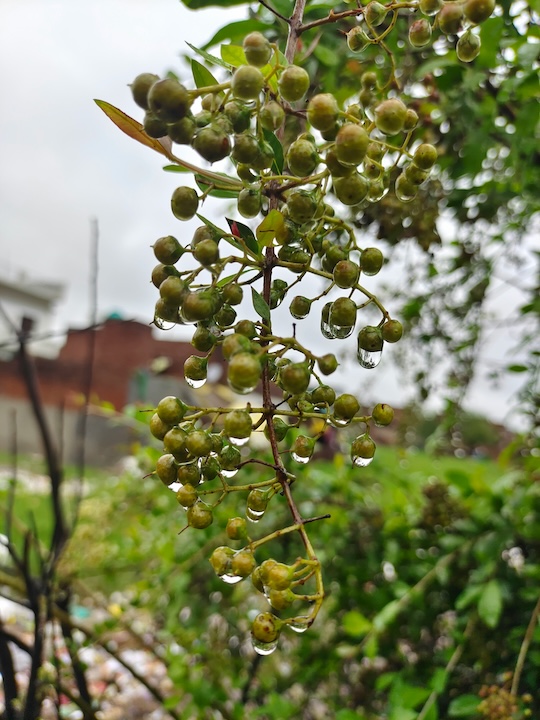
Joy can permeate a room or a situation, just like a fragrant flower.
And joyful people are often recognizable by their countenance and demeanor. Just as someone who has their hands or beard dyed a distinctive yellow, it’s a noticeable change.
Joy produces a visible change in our lives.
This doesn’t mean we’re happy all the time. But through all our range of emotions, we’re anchored in the knowledge of God.
Joy is one of the things that keeps us grounded as we allow ourselves to feel the full range of emotion God made us to have—including negative emotion.
Joy allows us to enter a situation and be an agent of change to add God’s perspective.
Take stock of what emotions have been most prominent for you in this season of your life. Whether positive or negative, take a moment to ask the Holy Spirit to show you where Joy changes the picture. Or where it can change you within the picture.
Peace: Spikenard
Another name for Spikenard is nardostachys jatamansi. It also refers to the oil people get from its root. It’s a medicinal plant.
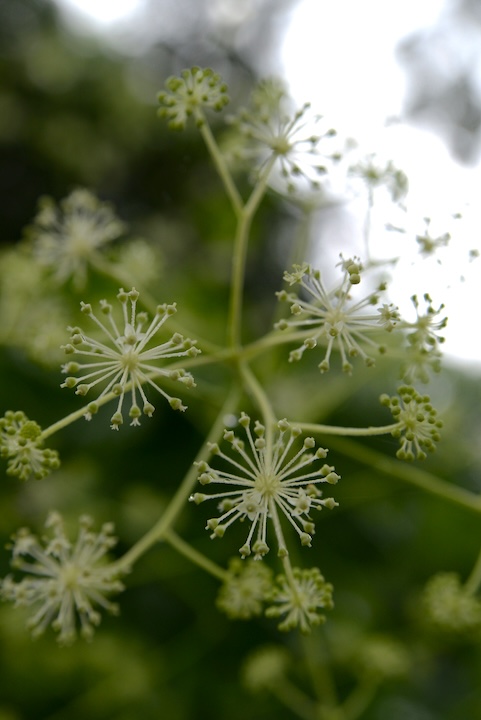
The Anishinabe tribe made tea from the root to assist in healing coughs. This is especially interesting to me as the Anishinabe are indigenous to the region of Minnesota where I live.
Other tribes across North America also used this plant as an antidote to poison in the blood, topically for boils, mastitis, sores or inflammation.
[I found a fascinating article with these details and more, and recommend it to anyone interested in herbal medicine and its historical indigenous roots.]
Matthew 5:9 says, “Blessed are the peacemakers, because they will be called sons of God.” Someone who’s willing to speak for peace can bring a lot of healing to people and to situations.
As a nurse, the parallel between a plant that reduces inflammation and the idea of peace reducing relational “inflammation” is very inspiring!
1 Peter 3:8 exhorts followers of Christ to “be like-minded, compassionate, loving as brothers, tenderhearted, courteous.” That’s why those who walk in peace are known as children of God. Because they bring people together the way Jesus did by prioritizing peace. And in that, they bring healing, just like spikenard brings healing.
What does bringing peace to the world around you mean to you?
Patience: Saffron
Saffron is a spice collected from a flower in the crocus family. This spice is fragrant—a little bit goes a long way—and is considered highly valuable.
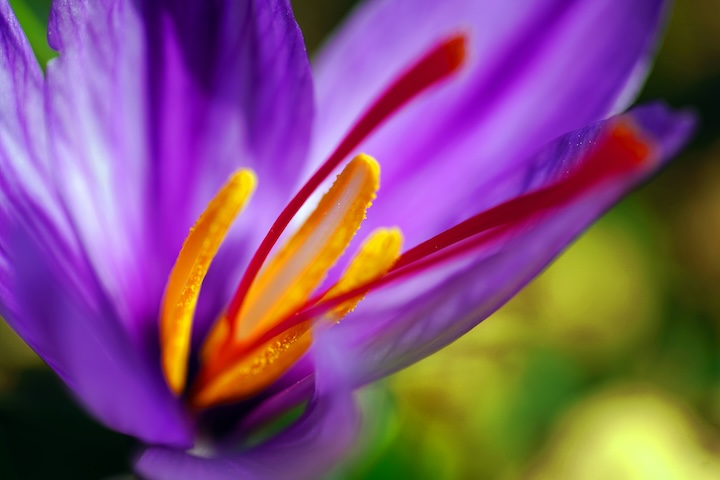
Saffron is a labor intensive crop. A lot of work produces a small amount of spice.
This is true of what it feels like to have patience.
In the moment, it takes a lot of work to build the skill of patience in our lives! It’s a skill that cannot be mastered in a day, but requires slow work to build bit by bit.
But when we put in the work to build this skill, it’s so valuable!
Patience can help give our hearts and minds the space they need to listen for Wisdom to speak.
Just like a little bit of saffron in rice can make it look and taste completely different, having the patience to wait for God to lead can bring an entirely different outcome to a circumstance than just rushing into it without first checking in with our discernment and the Holy Spirit.
Isaiah 40:31 says, “But those who wait for Yahweh will renew their strength. They will mount up with wings like eagles. They will run, and not be weary. They will walk, and not faint.”
When we practice patience and wait on the Lord, we can know that God’s response is to strengthen us.
When you think of patience, what circumstances do you think would benefit from listening to the quiet voice that suggests waiting on the Lord?
Kindness: Myrrh
Myrrh is a resin collected from the bark of the commiphora class of trees. It has many culinary, beauty and medicinal uses. People even use it to embalm the dead.
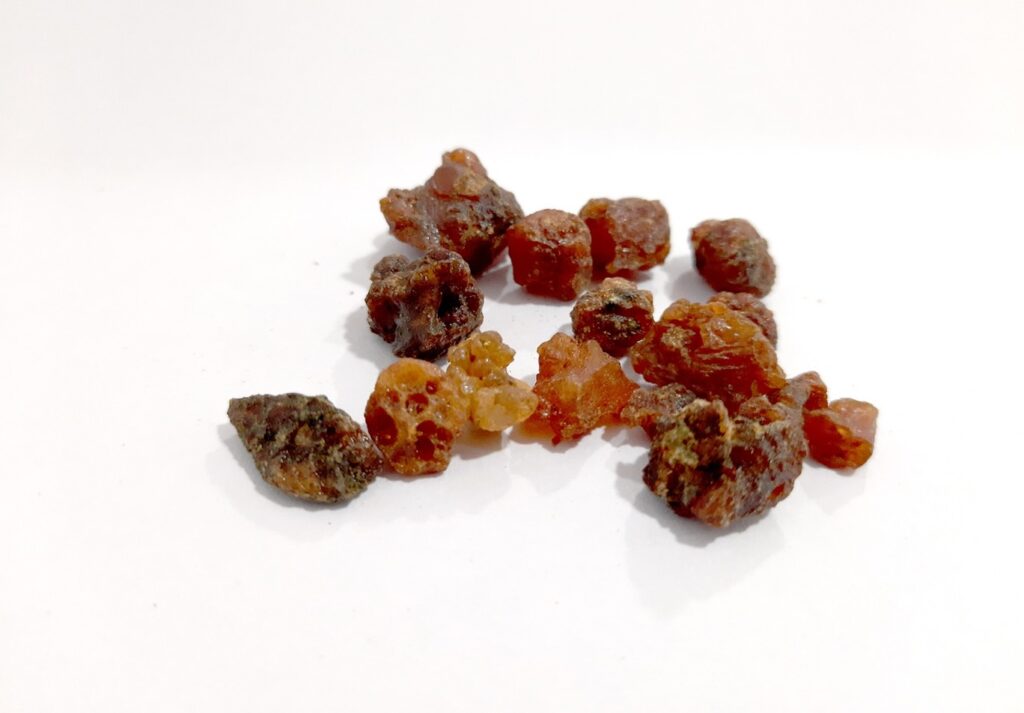
Myrrh was one of the three gifts the Magi brought to Jesus in the New Testament.
Of all of the different medicinal uses for myrrh, I found it of note that Myrrh can be used to treat leprosy.
In ancient times, leprosy was both feared and reviled. It was one of the diseases that caused people to have to live in isolation. To be rejected by their friends, their families and their faith communities.
A diagnosis of leprosy carried a high stigma with it of that person being “unclean” and unable to come before the presence of God at the temple.
Kindness is like myrrh spiritually.
Kindness brings people out of isolation and loneliness, even if they have something about them others consider awkward or controversial. Especially if they have something about them that the world or religion says stands between them and God and community.
Romans 8:37-39 says, “No, in all these things we are more than conquerors through Him who loved us. For I am persuaded that neither death, nor life, nor angels, nor principalities, nor things present, nor things to come, nor powers, nor height, nor depth, nor any other created thing will be able to separate us from God’s love which is in Christ Jesus our Lord.”
Even if we don’t agree with people, we can still offer them kindness and find common ground to move forward in sharing the love of Christ.
Reflect on this either with yourself or with others.
What are things you’ve heard that are like modern day versions of leprosy? Where can kindness help bring people out of isolation?
As I was writing this and reflecting on it, the one the Holy Spirit brought to mind for me is individuals experiencing homelessness.
Gentleness: Calamus
Calamus is also known as sweet flag. It’s called this because its leaves give off a sweet fragrance when they’re torn or broken.
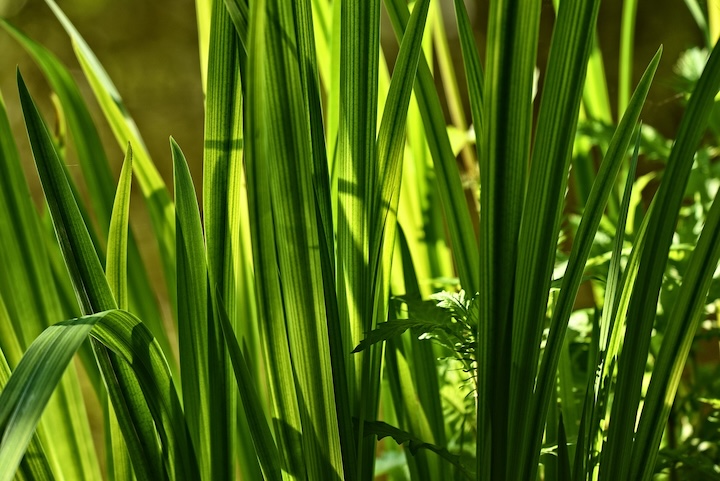
A potent medicinal plant, indigenous tribes used it in ceremonies, for medicine and as a valuable supply for trading.
When I think of these areas in our world today—relationships, healing, and exchanging goods and services—the fruit of Gentleness would be beneficial in all of those areas.
As someone who works in healthcare, I’ve seen how gentleness can bring healing.
Oftentimes, expressing gentleness to someone means making space for their pain. Being willing to hold it with them in that moment rather than putting up walls and being brusque or harsh.
Being gentle in moments of pain and weakness allows for trust to be built. In gentleness, we can have strength for those who need extra support in that season.
Gentleness and strength do not contradict each other, but rather amplify each other.
This combination of softness and strength that’s expressed through gentleness is one of the things that can truly differentiate someone who follows Christ from someone who doesn’t.
In moments of intensity and pain you have something to offer that others don’t.
John 13:35 says, “By this all people will know that you are My disciples, if you have love for one another.” How can you infuse your life with gentleness?
Goodness: Cinnamon
My first thought of cinnamon is how good it smells!
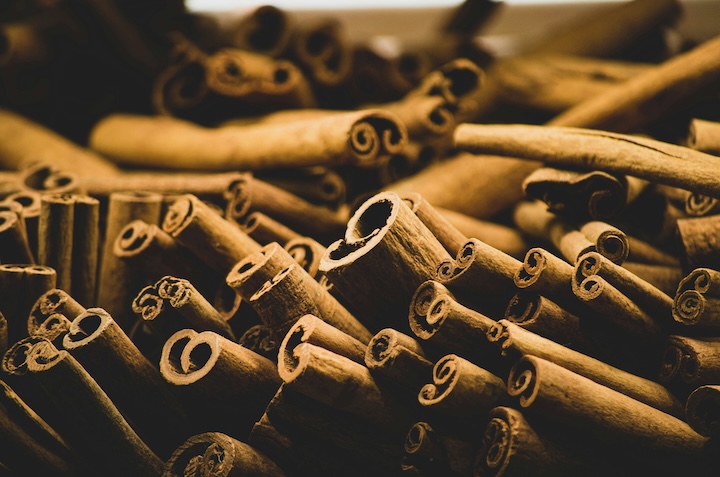
Waking up every year on Christmas morning, the house would be full of the smell of cinnamon. It was our family’s Christmas breakfast tradition to make bear claws with a cinnamon filling.
This spice is popular because of its sweet flavor and scent.
When I think of goodness, I think of home. Of tables full of laughter and light spilling out of windows welcoming you in to join the family.
The Bible describes the group of people who follow Christ as a family, calling us brothers and sisters.
Hebrew 10:19 says, “And now we are brothers and sisters in God’s family because of the blood of Jesus, and He welcomes us to come into the most holy sanctuary in the heavenly realm—boldly and without hesitation.”
The story of the prodigal son describes a son being welcomed into his family. And Psalm 68:6 says, “God settles the solitary in a home…”
Where has God provided home for you? Where can you provide the goodness of home for others?
Faithfulness: Frankincense
Frankincense is an aromatic resin that comes from the boswellia tree. Another one of the items gifted to Jesus by the magi.
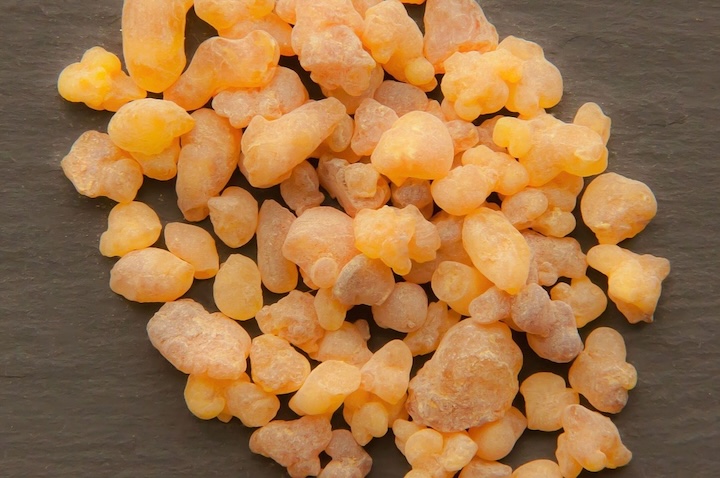
In my research, one of the first articles I read was an article on how frankincense has anti-tumor properties.
That got me thinking about the opposite of faithfulness: unfaithfulness, acting disloyal or false.
Betrayal and corruption can be like a cancer within a relationship or community. So many people report walking away from their faith because of church hurt and feeling betrayed when someone preached good but perpetrated harm. Relationships can feel irreparably damaged after they’re tinged with deceit.
That’s why faithfulness is so important.
Building this character aspect within us allows us to be the same people in public as we are when no one else is around. Jesus was someone who spoke truth and lived it. We want to emulate that.
Where have you felt hurt by others acting unfaithfully towards you?
Take time to sit with the Holy Spirit and ask to see in that memory where God was walking with you through that experience. There may be an opportunity for healing or forgiveness, or to start that journey.
Have you been unfaithful towards others? Take time to work that through with the Lord and those people, too!
Self Control: Aloe
Aloe is a plant I’m familiar with as someone who loves spending time outdoors.
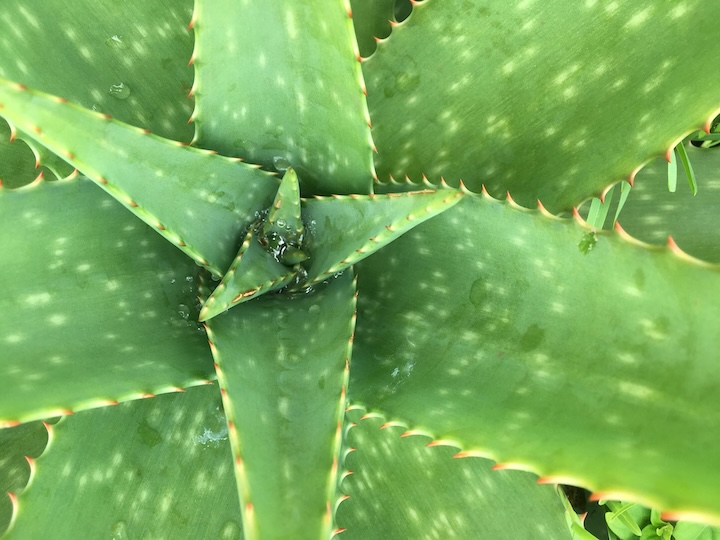
I grew up putting aloe on my sunburns after a long day at the beach. So when I think of aloe, I think of something that soothes.
Self-control can soothe as well. Proverbs 15:1 says, “A soft word turns away wrath.”
And in the same way aloe can soothe someone in pain, knowing when to speak and how to lean on the Holy Spirit for what to say can bring calm and healing to interpersonal situations that may be tense or inflamed.
Just like a sunburn may cause someone to feel pain, people can feel relationally “burned”. Self control can help start the journey of reconciliation.
What examples in your life can you think of where self control acted like a soothing agent within an irritated situation?
Are there any areas where you want more self control? Ask the Holy Spirit to help you act with more self control when those moments arise.
Download a printable PDF of this blog to take with you on your trip!
Here’s more…
- 5 Devotionals for Your Outdoor Adventure Trip
- Lessons from the Pearl
- How God Speaks through Signs in the Heavens
- It’s a Joy to Remember Our Outdoor Adventures - August 8, 2024
- 9 Free Devotionals for Your Next Camping Trip - July 18, 2024
- What Valuable Lessons Pearls Can Teach Us - June 6, 2024
